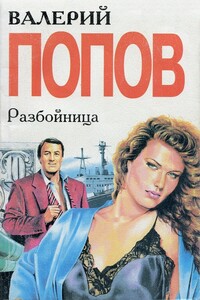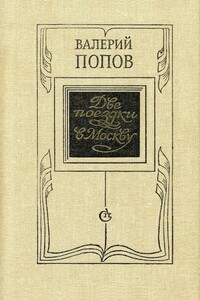36 Arguments for the Existence of God - [11]
And Mona had indeed been mindfully present to Cass during the long ordeal with, and without, Pascale; mindfully eager for every blood-smeared detail, which she had picked clean with raptor-zeal; mindfully condemnatory of the mindlessness that had left Cass so battle-of-the-sexes-scarred-“I hate to say it, Cass, but you’ve been pussy-whipped. So have I, if it’s any consolation”-that she, Mona, repeatedly wondered whether he’d ever be able to love a woman again.
Mona was facing stoically forward now, but Cass knew her well enough to read the silent reproach in her back. He knew what it must be costing Mona not to give way to temptation and swivel around backward to see what was going on now, and he felt remorse in a highly theoretical sort of way, which is to say that he supposed that somewhere, in whatever part of the brain was supposed to be involved in moral reactions-did Lipkin say it was the right orbitofrontal cortex or the left?-his neurons must be making desultory guilty gestures, and perhaps eventually he would register the muted activity.
Lipkin was now affirming the unthinkability of the unsayable, which prompted Lucinda to tickle Cass’s ear with a whispered “Ah, the all-too-common Wittgenstein Fallacy.”
It was as if she were prescient. The next words out of Lipkin’s mouth were “as we have learned from Wittgenstein.”
“Ah, the all-too-common As-We-Have-Learned-from-Wittgenstein Fallacy,” Cass shot back, winning from Lucinda a smile of such splendor, along with a playful elbow dig in his side, that he might have died happy at that moment, asking nothing more out of life than this.
When the unthinkable had happened, when everything had become unsayable for Pascale, she had clutched at Cass, her beautiful and terrible eyes gone even more terrible. One moment she was complaining that her right arm felt like “a little sharp-teeths bête, bite, bite,” and the next she was staring at him wildly, unable to utter a word, a soundless howling in her eyes.
The doctors had argued back and forth over whether the clot should be removed. Poor Pascale, with her repudiation of probability, was now caught in a deadly matrix of risks. Dr. Micah McSweeney, the neurologist with a love of literature-whose scruples about mixed metaphors had caused him to allow the loss of his right leg in a kite-surfing accident to determine his entire piratical presentation, had alone stood firm against surgery. McSweeney stood on a peg leg and wore a kerchief knotted over the top part of his head. Was the neurologist bald underneath? Was the jaunty kerchief another prosthetic? Cass would never know. The important point was that McSweeney had read Pascale’s poetry, and he knew that to operate was impossible. He, too, knew what he knew with savage certainty.
During the long days of sitting beside Pascale, her wild poetry silenced within her and her convulsively tragic eyes trying so hard to communicate some essential message to him, her icy child-sized hands clutching and unclutching his large warm palm, Cass had felt himself achieving a new and revelatory penetration into the nature of love. His adoration of the afflicted darling of his life, his own tormented wife, sank so deeply into his being that he felt it must be transforming him on the cellular level.
He had first laid eyes on her on a cold December evening at a reading she had given at the crowded Grolier Poetry Book Shop in Harvard Square. The Grolier had been crowded with books, not with people. He had been one of only three attending the reading of her newly translated book, and he was pretty certain that the other two, a man and a woman, had come in to get out of the cold. The man kept loudly blowing his nose into what looked like a torn scrap of a brown paper bag, and the woman noisily unpacked a sandwich, the aluminum foil making a racket. Cass had wished that he could reach out his enormous hands to ward off these insults from the eyes and ears of the poet, her smoky voice struggling beneath the foreign tongue and barbarities.
But though he had fallen in love with Pascale because of her words, it was only now, in her writhing wordlessness, that he knew how entwined their two souls were. They inhabited this silence with an intimacy so complete it all but matched a person’s own intimacy with himself. The two of them were alone together inside this silence, with all the world outside. Her brilliant words, counter, original, spare, and strange, had entranced him, but also distracted him, distanced him even as they pulled him in. Perhaps words always do. We depend on them to read each other’s souls-what else do we normally have?-but it’s only in cases like this, when the other is simply given to one, soul to soul laid out before one like a scene before the eyes, that one really knows who the other is.
He had spoken of all this and more to his stricken wife, sometimes in words, but more often in the soundless communion to which they had been both reduced and elevated.
And then, one evening, after the supper tray-loaded with the home-cooked food he brought her-had been removed, she had spoken, vindicating McSweeney, who alone had known what Pascale’s own passionate desire was in regard to the question of whether to operate or not, while Cass had wandered lost in the matrix of risks.

ББК 84.Р7 П 57 Оформление художника С. Шикина Попов В. Г. Разбойница: / Роман. Оформление С. Шикина. — М.: Вагриус, СПб.: Лань, 1996. — 236 с. Валерий Попов — один из самых точных и смешных писателей современной России. газета «Новое русское слово», Нью-Йорк Книгами Валерия Попова угощают самых любимых друзей, как лакомым блюдом. «Как, вы еще не читали? Вас ждет огромное удовольствие!»журнал «Синтаксис», Париж Проницательность у него дьявольская. По остроте зрения Попов — чемпион.Лев Аннинский «Локти и крылья» ISBN 5-86617-024-8 © В.

ББК 84.Р7 П 58 Художник Эвелина Соловьева Попов В. Две поездки в Москву: Повести, рассказы. — Л.: Сов. писатель, 1985. — 480 с. Повести и рассказы ленинградского прозаика Валерия Попова затрагивают важные социально-нравственные проблемы. Героям В. Попова свойственна острая наблюдательность, жизнеутверждающий юмор, активное, творческое восприятие окружающего мира. © Издательство «Советский писатель», 1985 г.

Две неразлучные подруги Ханна и Эмори знают, что их дома разделяют всего тридцать шесть шагов. Семнадцать лет они все делали вместе: устраивали чаепития для плюшевых игрушек, смотрели на звезды, обсуждали музыку, книжки, мальчишек. Но они не знали, что незадолго до окончания школы их дружбе наступит конец и с этого момента все в жизни пойдет наперекосяк. А тут еще отец Ханны потратил все деньги, отложенные на учебу в университете, и теперь она пропустит целый год. И Эмори ждут нелегкие времена, ведь ей предстоит переехать в другой город и расстаться с парнем.

«Узники Птичьей башни» - роман о той Японии, куда простому туристу не попасть. Один день из жизни большой японской корпорации глазами иностранки. Кира живёт и работает в Японии. Каждое утро она едет в Синдзюку, деловой район Токио, где высятся скалы из стекла и бетона. Кира признаётся, через что ей довелось пройти в Птичьей башне, развенчивает миф за мифом и делится ошеломляющими открытиями. Примет ли героиня чужие правила игры или останется верной себе? Книга содержит нецензурную брань.

О книге: Грег пытается бороться со своими недостатками, но каждый раз отчаивается и понимает, что он не сможет изменить свою жизнь, что не сможет избавиться от всех проблем, которые внезапно опускаются на его плечи; но как только он встречает Адели, он понимает, что жить — это не так уж и сложно, но прошлое всегда остается с человеком…

В жизни каждого человека встречаются люди, которые навсегда оставляют отпечаток в его памяти своими поступками, и о них хочется написать. Одни становятся друзьями, другие просто знакомыми. А если ты еще половину жизни отдал Флоту, то тебе она будет близка и понятна. Эта книга о таких людях и о забавных случаях, произошедших с ними. Да и сам автор расскажет о своих приключениях. Вся книга основана на реальных событиях. Имена и фамилии действующих героев изменены.